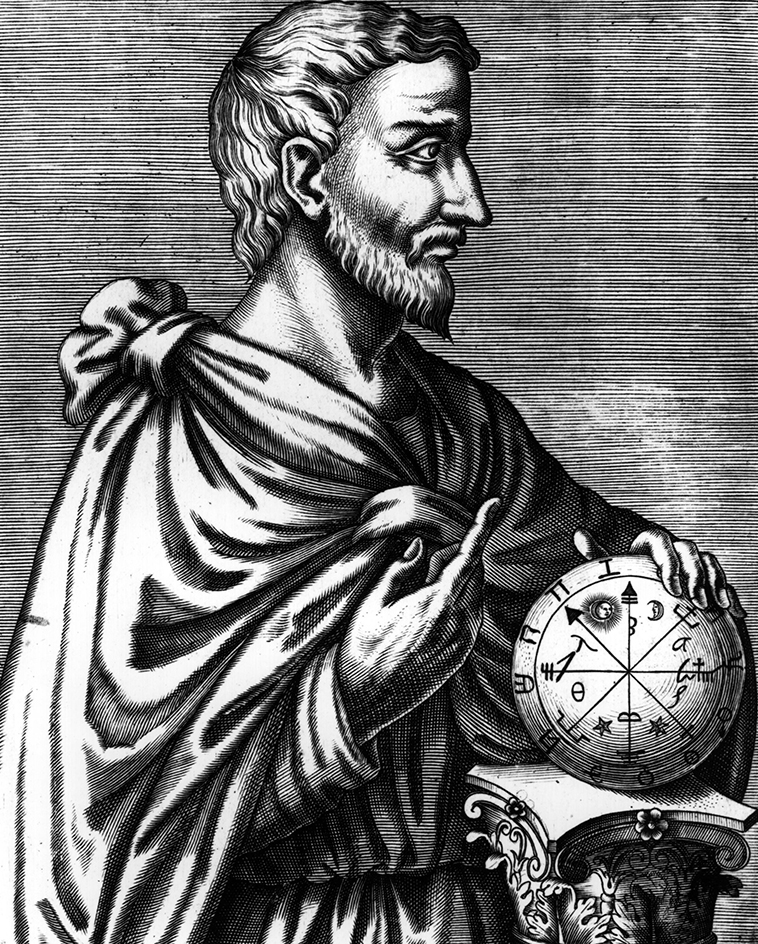Pythagoras, << pih THAG uhr uhs >> (580?-? B.C.), was a Greek philosopher and mathematician. Pythagoras was famous for formulating the Pythagorean theorem, but its principles were known earlier. The theorem states that the square of the hypotenuse of a right-angled triangle is equal to the sum of the squares of the other two sides.

As a philosopher, Pythagoras taught that number was the essence of all things. He mystically associated numbers with virtues, colors, and many other ideas. Pythagoras also taught that the human soul is immortal and that after death it moves into another living body, sometimes that of an animal. This idea is called transmigration of the soul. It appears in many early religions and is still the belief of many of the Hindu sects of India. Pythagoras may have obtained some of his ideas during travels in the East.
Pythagoras believed that the earth was spherical and that the sun, moon, and planets have movements of their own. His successors developed the idea that the earth revolved about a central fire. This belief anticipated the Copernican theory of the universe (see Copernicus, Nicolaus ).
Little is known of Pythagoras’ early life, but scholars believe that he was born on the island of Samos. In about 529 B.C., he settled in Crotona, Italy. Pythagoras founded a school (brotherhood) among the aristocrats of that city. The people of Crotona were suspicious of the Pythagorean brotherhood because its members were aristocrats. The people killed most of the members in a political uprising. Historians do not know whether Pythagoras left the city some time before the outbreak of violence and escaped death there, or was killed in it. The brotherhood of aristocrats was finally destroyed in the 400’s B.C.
